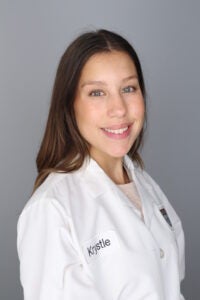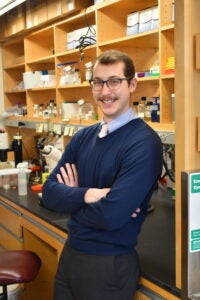 Krystle Kalafut
Krystle Kalafut
Bachelor of Science in Molecular Biology with minors in Chemistry and Fitness from University of Pittsburgh (2015).
Krystle is interested in understanding how our bodies adapt to changes in nutrient availability in response to fasting and feeding and alterations in diet composition. In the Manning lab, she is focused on defining the regulation of the mTORC1 growth signaling pathway in the liver during fasting and feeding in mice. Her work has important implications for metabolic disease, cancer, and aging.
Prior to graduate school, Krystle conducted research as a postbaccalaureate fellow at the National Institute on Aging and wrote an honors thesis as a result of her undergraduate research. She also completed a year of service with AmeriCorps in her home state of Ohio, during which she served as a community health educator in the areas of diabetes prevention and nutrition. Krystle is passionate about translating basic research findings to improved public health outcomes, and she is involved in STEM outreach and is interested in science policy and writing. In her free time, Krystle enjoys running and yoga, baking, and spending time with her pets (2 cats and 1 dog)
 Samuel Lapp
Samuel Lapp
Bachelor of Science in Cell and Molecular Biology with a minor in Architecture from Tulane University (2018)
Master of Science in Kinesiology from the University of Illinois at Urbana-Champaign (2020)
Samuel focuses on discovering the mechanisms underlying how skeletal muscle balances protein and carbohydrate metabolism to contribute to overall metabolic homeostasis. Specifically, he is investigating how the tuberous sclerosis complex (TSC) subunit 2 (TSC2) acts as a switchboard to balance upstream signals such as insulin into outputs such as protein synthesis and glucose uptake and storage. By studying this pathway in skeletal muscle, we may uncover treatments for disorders in skeletal muscle function as well as broader metabolic disorders.
He graduated Cum Laude from Tulane and from 2016-2017, Samuel Lapp conducted research at the Shirley Ryan Ability Lab in Chicago studying skeletal muscle physiology in children with cerebral palsy (Lieber Lab). His master’s thesis was in the Boppart Lab, titled “Optimization of a Pericyte Therapy to Improve Muscle Recovery Following Hindlimb Immobilization”.



